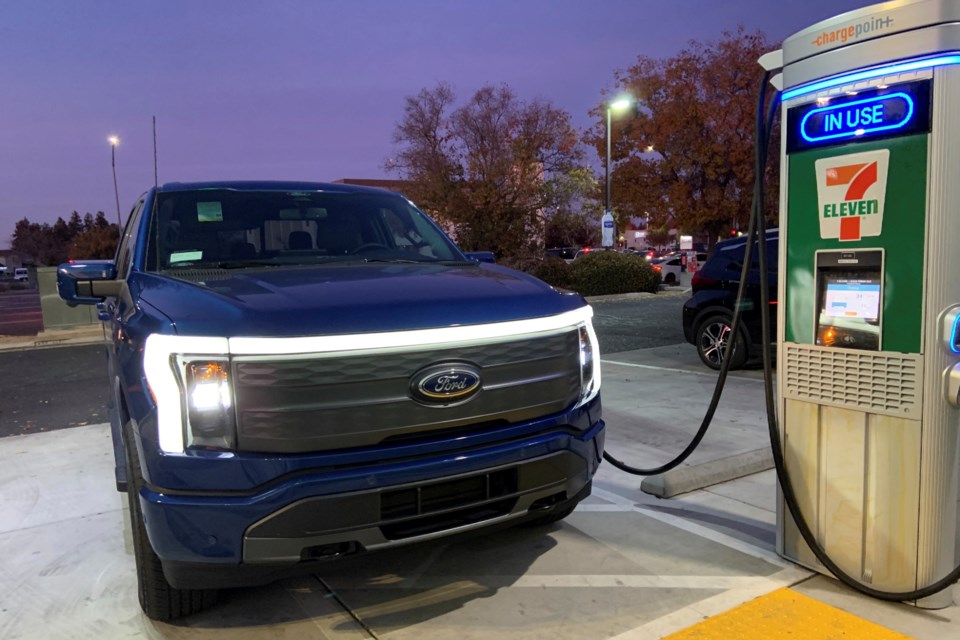As sales of electric vehicles continue to grow, so do the number of questions curious shoppers have when considering making the switch to a fully electrified car, truck or SUV. Undoubtedly, the experience of driving and owning an electric vehicle is different from the traditional one for a gas-powered vehicle. To help first-time EV shoppers, the automotive experts at Edmunds address the most common concerns car shoppers have about going electric.
SHOULD I WORRY ABOUT RANGE ANXIETY?
It鈥檚 true, no matter its price tag or performance, every EV only travels so far before the driver needs someplace to charge the vehicle鈥檚 battery. Thankfully, more and more EVs have enough range to satisfy a wide range of buyers. Consider how many miles you drive on an average day. Chances are, it鈥檚 well below what a new EV is capable of. Many models are now capable of driving more than 300 miles on a full charge. As long as you鈥檙e not somebody who drives a car until it鈥檚 sputtering on its final remaining drops of fuel, you should be fine.
The trickier issue is range while making longer highway trips of hundreds of miles. These can potentially require multiple stops to charge. Range still won鈥檛 likely be an issue as long as you plan ahead, but the extra time required for stopping and charging can be a hassle compared to the convenience of fueling a gas-powered vehicle.
WHAT鈥橲 THE BEST WAY TO CHARGE MY EV?
An EV owner鈥檚 home, where a dependable and well-maintained charge point is ready and waiting, is typically the best place. Having a dependable recharging spot takes away much of the stress car shoppers have about EVs.
There are different levels of charging. The most common method is what is sometimes referred to as Level 2 charging. It uses a 240-volt power source, similar to what operates large appliances like a stove and clothes dryer. Level 2 can usually fully charge an EV battery overnight.
EV owners who don鈥檛 have access to a home charger will have to rely on public charging stations. It鈥檚 much less convenient but it鈥檚 still possible to do. In this case, Level 3 charging, or DC fast charging, is the quickest means of juicing up an EV. It can take less than 30 minutes to get a sizable recharge using this method. Tesla鈥檚 vast nationwide network of Supercharger stations is an example of Level 3 charging.
HOW LONG DO EV BATTERIES LAST?
The battery pack in an EV does have a limited working life, though it鈥檚 longer than what many shoppers might think when considering an electric. At a bare minimum, a federal mandate requires every new EV to have an eight-year/100,000-mile battery warranty, and many experts say they will last longer.
You can loosely think of an EV鈥檚 battery as being similar to the one in your smartphone. Over the course of hundreds or even thousands of charging cycles, a battery鈥檚 maximum capacity, and therefore its maximum range, eventually takes a hit. Even so, the loss in range is manageable. One analysis found that the average rate of range decline for a battery is about 2.3% per year. Certain techniques, such as limiting your EV battery charging to 80% or 90% capacity for routine driving, can help maximize battery life.
WHICH EVS QUALIFY FOR THE FEDERAL TAX CREDIT?
Many EVs are eligible for tax credits, but the formula used to determine this has gotten more complicated. Navigating the fine print takes time and, in some cases, the EV you鈥檙e considering won鈥檛 be eligible for any federal tax credits at all.
First, know that federal EV tax credits max out at $7,500 for new vehicles and $4,000 for used. For the full $7,500 credit, a new EV鈥檚 production location has to be within the U.S. Additionally, a certain percentage of the car鈥檚 battery components must be sourced either in the U.S. or from a country with a free-trade agreement with the U.S. Only a handful of EVs fully qualify under these rules. However, some automakers are using leasing as a means to pass along the credit on their EVs. You don鈥檛 get the tax credit, but these automakers will bake the price reduction into the lease offer.
There are also eligibility limits set for the vehicle鈥檚 price and the vehicle purchaser鈥檚 income. Confused? You鈥檙e not alone. Luckily,
EDMUNDS SAYS
Owning an EV for the first time can be a bit daunting at first. People have had their whole lives to get used to driving gas-powered vehicles, and EVs are basically brand-new. But once acclimated, drivers will find there are many enjoyable aspects to driving an electric vehicle. As sales of electric vehicles continue to grow, so do the number of questions curious shoppers have when considering making the switch to a fully electrified car, truck or SUV. Undoubtedly, the experience of driving and owning an electric vehicle is different from the traditional one for a gas-powered vehicle. To help first-time EV shoppers, the automotive experts at Edmunds address the most common concerns car shoppers have about going electric.
_______
This story was provided to by the automotive website .
is a contributor at Edmunds and is on and
Nick Kurczewski, The Associated Press




